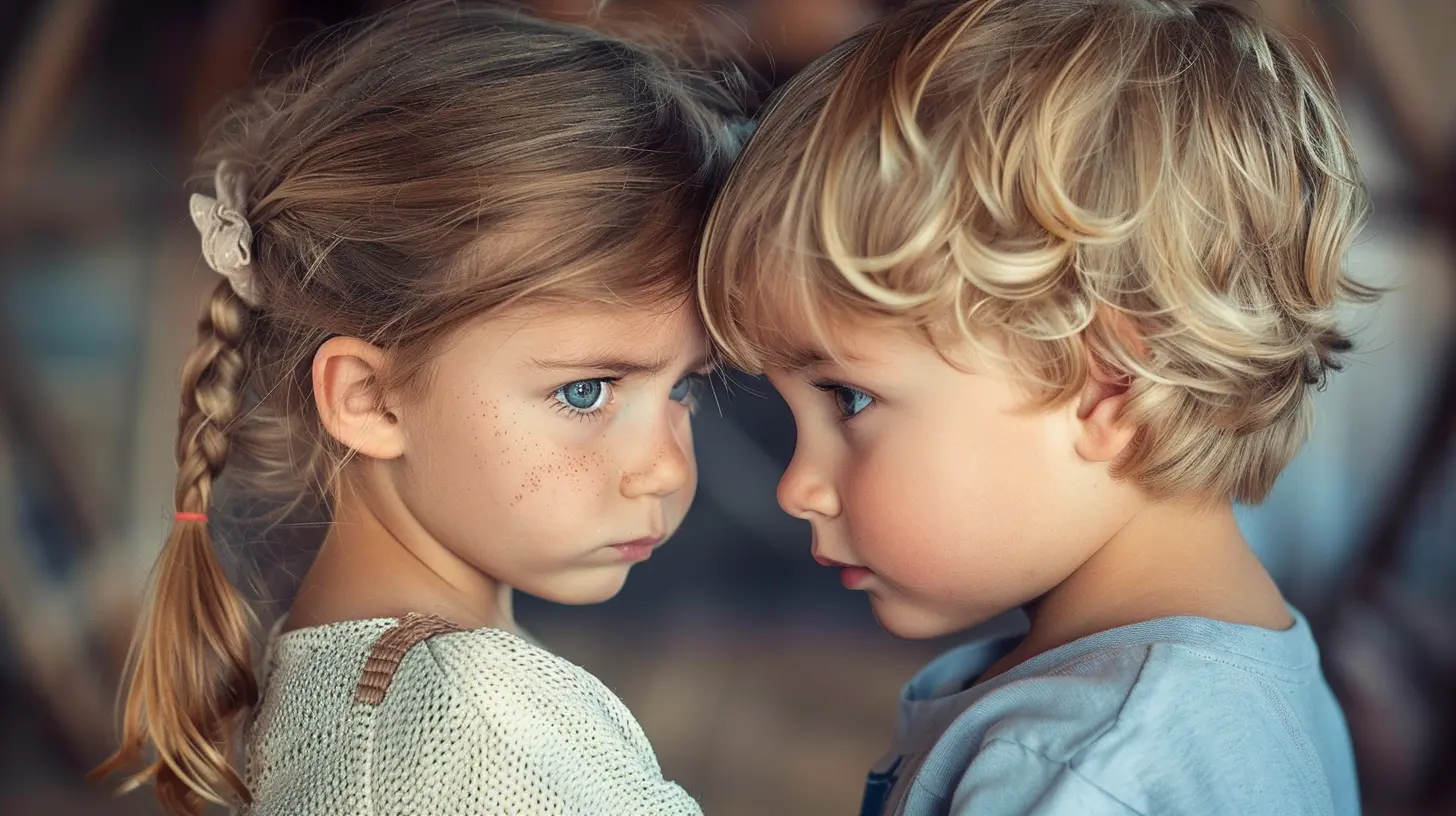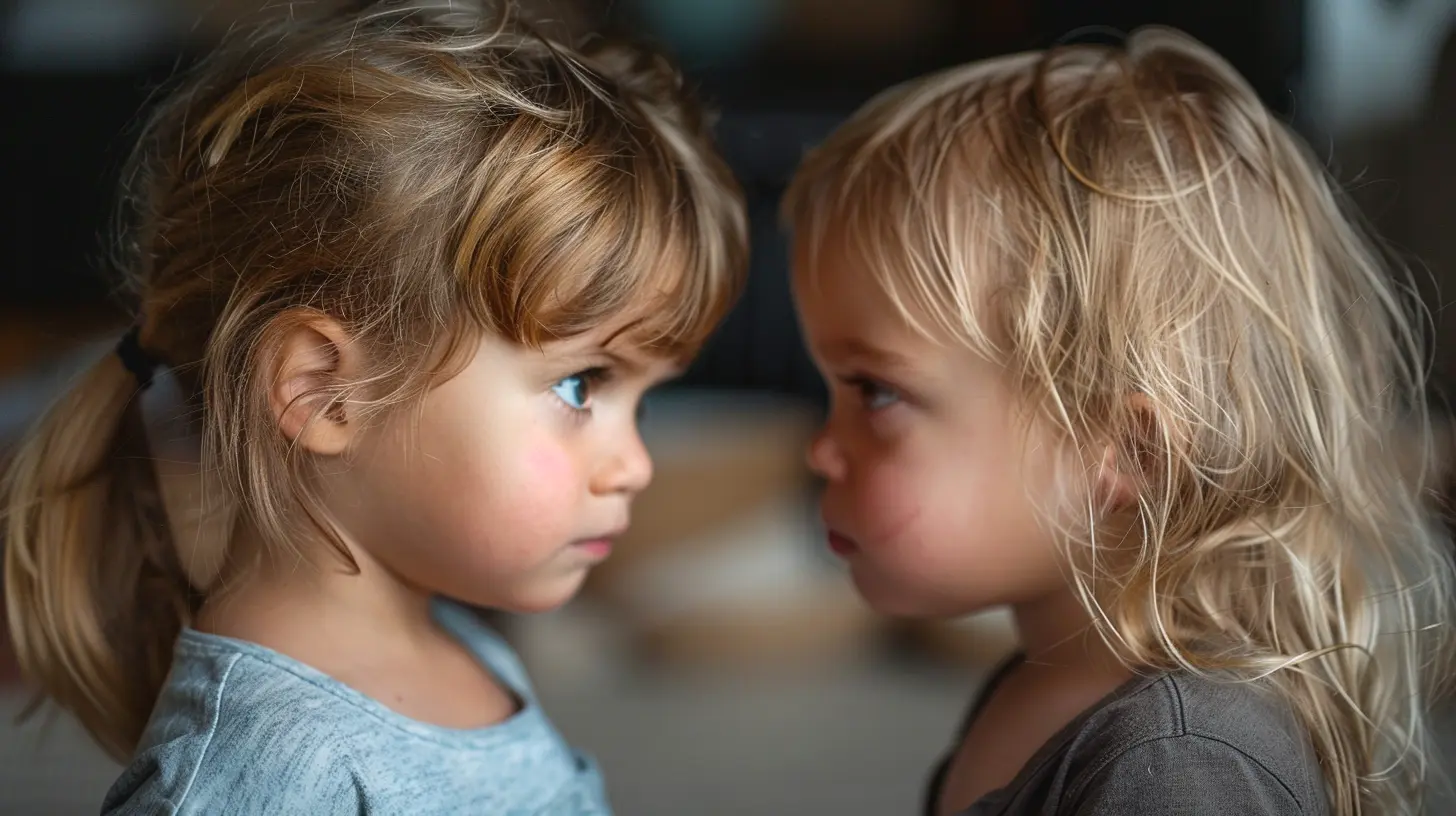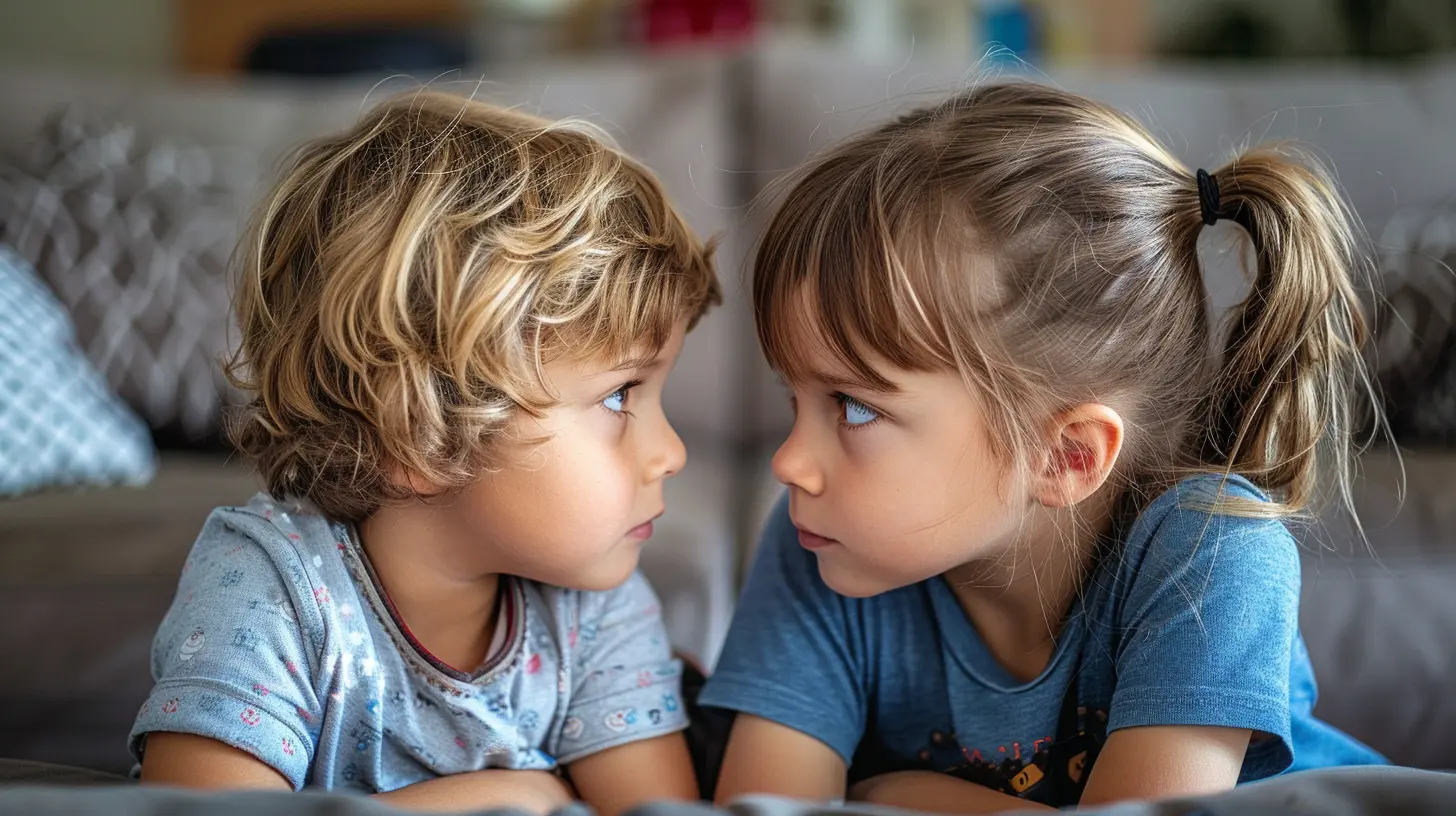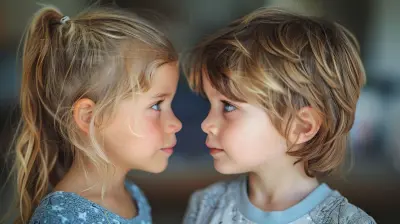How to Turn Sibling Conflicts into Valuable Life Lessons
13 October 2025
If you're a parent, you've most likely played the referee between your kids more than once. Maybe it started over who gets the last cookie or who had the toy first. Before you know it, there's yelling, tears, and you're left wondering how you ended up in the middle of World War III over a stuffed animal.
But hey—what if I told you there's a silver lining here?
Yup, sibling conflicts can actually be golden opportunities. Stick with me, and I’ll walk you through how those chaotic moments can become powerful teaching tools for your kids and offer valuable life lessons they’ll carry with them forever.
Why Sibling Conflict Isn’t All Bad
Let’s face it—conflict is a part of life. Whether it's at school, with friends, future coworkers, or even within their future families, your children will need to know how to navigate disagreements. And guess what? The sibling battlefield is often the first place they start practicing.Instead of trying to prevent every little tiff (which, let’s be honest, would drive you bananas), it's about guiding them through it in a healthy way.
Think of sibling clashes as training wheels for real-life relationships. They teach our kids resilience, compromise, emotional control, and even empathy. Sounds like a lot for two kids yelling over the remote, right? But it’s true.
The Root of Most Sibling Fights
Before we dive into the lessons, it helps to understand why brothers and sisters fight in the first place. Here are a few common triggers:- Jealousy: “You gave her more juice than me!”
- Territory issues: “He’s in MY room.”
- Attention-seeking: Kids fighting to get your attention (yep, even negative attention counts).
- Personality differences: Just like adults, kids have unique temperaments.
- Unmet needs: Hunger, tiredness, or stress can turn your sweet kid into a volcano ready to erupt.
Understanding the source of the conflict helps you respond more thoughtfully instead of jumping in with punishment.
Step-by-Step: Turning Conflict Into a Teaching Moment
Let’s break it down. Here’s how you can actually teach your kids something good every time they butt heads.1. Stay Calm (Even If You’re Screaming Inside)
Your kids will learn from how you respond. If you lose it, you’re just modeling poor conflict resolution. Take a deep breath (or five). Step in with a calm, firm tone.Not easy, I know. But think of it like being the thermostat, not the thermometer—you set the emotional temperature.
2. Pause and Observe Before Jumping In
Sometimes, kids can work things out on their own. Other times, not so much. If it's escalating or anyone's at risk of getting hurt, step in. But otherwise, quietly observe first.Give them a chance to problem-solve. You might be surprised.
3. Acknowledge Emotions First
Resist the urge to "fix" the fight immediately. Start by naming what each child is feeling. It might sound like:- “You’re angry because your brother took your toy, right?”
- “And you were feeling left out because your sister didn’t want to play with you?”
When kids feel heard, their emotional tempers drop.
4. Don’t Label
Avoid calling one child “the troublemaker” or “the good one.” Labels can stick, and they don’t help. Focus on the behavior, not the child.Instead of, “Why are you so mean to your brother?” try, “Let’s talk about what happened and how it made him feel.”
5. Guide Them to Problem-Solve
Now’s your golden moment. Ask open-ended questions that help them think about solutions.- “What do you think we can do to make this fair?”
- “How would you feel if that happened to you?”
- “What can we do differently next time?”
You’re not there to give all the answers. You’re helping them find their own.
6. Encourage Apologies (But Don’t Force Them)
A forced “sorry” doesn’t teach empathy. It's just words. Encourage apologies when your child is ready, and help them understand why it matters.You could say, “When we hurt someone, it helps to say sorry and make things right.”
7. Praise the Positives
Caught them sharing without a fight? Teaming up without tears? Celebrate those moments just as much as you manage the conflicts!“Hey, I noticed you let your sister have the first turn this time. That was really kind.”
Positive reinforcement goes a long way with kids.
Life Lessons Kids Learn from Sibling Squabbles
Now for the part that makes all the chaos worth it—what your children are actually learning from these conflicts.1. Emotional Intelligence
Understanding their own emotions and being able to recognize someone else’s? That's emotional intelligence, and it starts building right here.They learn to say things like, “I feel upset when you take my things,” instead of just lashing out.
2. Communication Skills
Sibling fights give kids a chance to build their vocabulary around feelings, needs, and negotiation. Over time, they learn to express themselves clearly—and maybe even calmly (we can dream, right?).3. Problem-Solving
They learn how to find solutions that work for everyone, which is huge. Whether they’re deciding how to split TV time or deciding who gets to pick the family movie, they’re flexing those problem-solving muscles.4. Empathy and Perspective-Taking
This is a big one. Through conflict resolution, children learn to step outside their own experiences and imagine how others feel.It doesn't happen overnight, but every sibling squabble is a step in that direction.
5. Boundaries and Respect
Your kids learn that their actions affect others—and that everyone deserves respect. They also learn how to set and stick to boundaries, which is a skill many adults still struggle with.A Real-Life Example (Because We’ve All Been There)
Let me paint you a picture: Saturday morning. You’re making pancakes. The kids are in the living room arguing (again) over who gets the blue controller for the game console. It’s loud. It’s annoying.You walk in, knee-deep in syrup and patience wearing thin.
But this time, instead of snapping, you say:
“Whoa, sounds like we’re having a disagreement. Let’s pause. One at a time, tell me what’s going on.”
You listen. You name feelings. You guide them to a middle ground—taking turns each day or playing a two-player game.
They walk away calmer. You walk back to your pancakes. Crisis defused, teachable moment scored.
It wasn’t perfect, but it worked.
That’s the point. It’s not about having conflict-free kids. It’s about helping them grow through the conflicts they do have.
What If It Gets Out of Hand?
Look, not all sibling conflict is created equal. If there's bullying, manipulation, or it’s seriously affecting their mental health, it’s time to dig deeper. You might need to set firmer boundaries, change routines, or even get professional help.There’s no shame in that—it just means you care enough to get extra support when needed.
Practical Tips to Minimize (Not Eliminate) Sibling Fights
While conflict can be productive, nobody wants to live in a war zone 24/7. Here are some tried-and-true tips to reduce the frequency of spats:- One-on-one time: Make sure each child gets individual attention.
- Set clear rules: Lay down what’s acceptable and what’s not.
- Teach problem-solving daily: Use books, shows, or real-life situations to talk about resolving issues.
- Encourage teamwork: Set up activities where they have to work together (like building a fort or cooking).
- Model respect: Kids mirror what they see. Treat others the way you want your kids to treat each other.
Final Thoughts: Embrace the Messy Moments
Sibling conflicts can feel like nails on a chalkboard some days. But those frustrating little battles are actually opportunities in disguise—ones that can strengthen your child’s emotional intelligence, compassion, communication, and problem-solving abilities.Remember, your job isn’t to shield your kids from every fight. It’s to guide them through it. Plant the seeds now, and you’ll raise adults who know how to handle disagreements with grace, empathy, and maturity.
And who knows? One day, they might even thank you for it.
Well, after they stop arguing over who gets the front seat.
all images in this post were generated using AI tools
Category:
Sibling RivalryAuthor:

Austin Wilcox
Discussion
rate this article
1 comments
Flint Heath
Great insights! Encouraging open communication can truly transform conflicts into valuable learning experiences.
October 21, 2025 at 3:01 PM

Austin Wilcox
Thank you! I'm glad you found the insights valuable. Open communication is indeed key to turning conflicts into growth opportunities.


